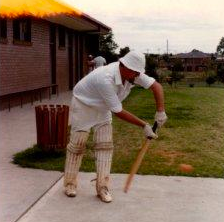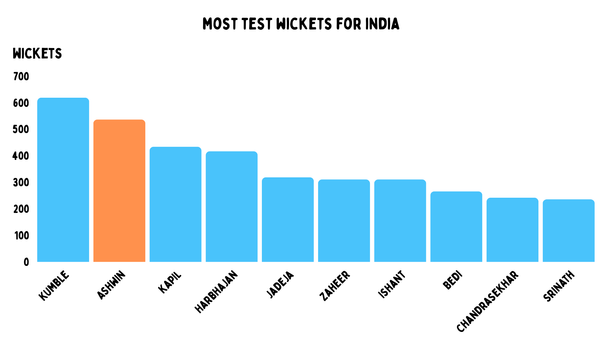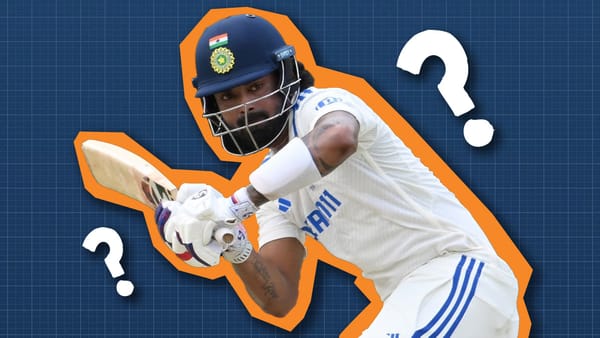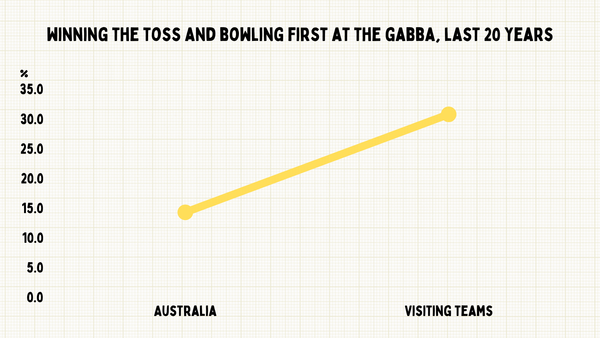The Lillee of Campbellfield
Peter Kimber: The surburban outswing legend My father played cricket for years, this is my story on him.

Dennis Lillee meant something to Australia. It wasn’t about cricket, it was about national identity.
Lillee was just a kid from the wrong coast who became one of the best fast bowlers on earth. Then his back broke. Sportsmen get injured, it’s part of life, and the lucky ones come back, often not as good as they once were, while many just fade away completely.
Lillee didn’t just come back, he had a resurrection, and Jesus Christ himself couldn’t have had a bigger impact on Australia. This was a man who went from being the world’s best bowler to a broken bank clerk who also ran a cleaning company, before finding a PE teacher to train his body, and reprogrammed his own brain. What came back wasn’t a bowler, it was everything Australia wanted to be.
Angry, but in charge. Hard-working, but well compensated. Fit, but fun. Pretty, but masculine. And most importantly, free and Australian. He was more Australian than Vic Bitter, Bondi beach, and the Great Barrier Reef combined at a Sunday barbie. He was a living, breathing, fire-spitting Australian god.
The country wanted to be him. And so did my dad.
Lillee was actually younger than my dad, but that didn’t matter. My dad had hair like Lillee, the facial hair like Lillee, the chest hair like Lillee, and the outswinger like Lillee.
Before I knew who Lillee was, I knew my father was like him. “Kid, your old man’s bowling like bloody Dennis Lillee out there.”
Our club was the home of two things, the North Fawkner Football Club, which was famous for being perhaps the worst football club in Australia. And Campbellfield Cricket Club, which, for a time, was known as “Kimberfield”.
That club was a part of us. It was pretty much halfway between where my father and I grew up. I was, depending on which version of the story you hear, either one or two weeks old when I first visited.
When I was 13, I broke my finger trying to take a catch in a grand final for Cambellfield. I ran off the ground to show it to my father, he asked someone to get some tape, then he taped my broken finger to a healthy one, and sent me straight back onto the field. I didn’t question it, the club was bigger than me, bigger than him, bigger than us. And it was my job to get back out there.
I already knew all the stories about my dad, about the many seven wicket hauls (“So many, he’s probably forgotten most of them”) the eight wicket haul, the hat trick, and the nine for. I knew about the opposition team who would plan their entire day around not going out to him. About his days as a tearaway for North Carlton, and how other teams knew he would bowl from one end unchanged for a one day match.
He bowled for Campbellfield until his legs bowed out, he bowled until his leg bones wore away all the cartilage, he bowled after he was told he’d need a knee replacement, he bowled, because Campbellfield needed him too.
There are two kinds of athletes, the one who just plays, and the one who thinks a lot, and then tries to play. My father would pick up a ball, it would fit right, as if his hand and the ball had been designed just for each other, the seam would basically rotate on its own to find the ideal angle, he would take a couple of slow steps, his right arm would almost brush his ear and from his hand would come the perfect outswinger. Every time.
My hand would never feel quite right when I had the ball. I could never automatically remember which foot I started off on my run. I fretted about my wrist position even as I passed the umpire. I overcompensated with my front arm through fear. And I almost never hit the crease feeling like I was doing it right. With all that in my mind, I never produced the same ball, the same way, twice.
I was a better fielder, better batsman, better athlete, and better captain than him. But dad had certainty, and I had doubt. He knew what he had to do, and did it. I never knew, and it showed. He found a discipline and mastered it.
When my dad coached the other kids in our team, he had this withering look that made them come to attention and listen to him. It never worked on me, but he always had a way of bringing me down, letting me know who was in charge. He would wait until I was batting in the nets, usually just after I had slogged a couple away, and hadn’t been listening to his advice. He’d pick up the oldest ball, a ball that wouldn’t swing, with no shine or seam left to it, with no real life in it at all, and he’d gesture to the next bowler that he was slipping into the rotation to bowl the next ball.
By this stage I was already deflated, it had happened so many times before. A few waddling steps, a high-arm action, and a slow-medium ball that would delivered so perfectly it was like it could slice me open, take out my inner demons and laugh at them. Sometimes I would hit it, but even then, it was limp, it went nowhere. Mostly I missed it, and it bowled me. The noise of metal training stumps hitting the gravel behind the wicket was the sound of him putting me in my place.
Dad wouldn’t even wait around for the ball to be thrown back to him, he wouldn’t offer coaching tips, he wouldn’t smirk, he’d just walk back to his place behind the bowlers.
Son kept in line, job done.
I never saw him at his best, but to be honest, I couldn’t have handled him if he was.
The older, fatter and slower my dad became never actually stopped him taking wickets. He wasn’t always a firsts player at Campbellfield, but as the seconds’ leading bowler, he continued to dominate. For the teams and players who had played against him, that was nothing new, at times teams had purposely tried to not score against him, while trying to win the game at the other end.
PK, as they called him, was well known.
But even when on occasion he’d play against players or teams that didn’t know him, they would be reckless, and instead of playing safe to his boring, impeccable outswingers for hours on end, they’d play shots and he’d take lots of their wickets. They’d come off the ground in a typical bad mood, moaning about their fate, and the bowler, in general earshot of the scorer. They’d call him a bastard, they’d say he was slow, and delight in pointing out how fat he was.
The scorer was my mum.
If they questioned how they’d got out to that slow, fat bastard, her dry sense of humour and love of dramatics would pour out of her as she would make a point of loudly counting all the batsmen the slow, fat bastard had taken. Pausing for effect after each one. Letting them know that if he was shit, what did that make them.
My parents were very different people, but a perfect partnership.
When my wife and kids go back to Melbourne now, my sons sleeps in the room where my dad keeps all his cricket trophies. It makes me remember all those days of standing in front of the windowless concrete bug-infested hot box of Campbellfield Cricket Club.
There are round thistles in the ground. I would constantly be picking them out of my clothes. There are bull ants, one got me right on the point of the knee once and it hurt for weeks. I am laying with a cricket ball, they always gave me the ones that had been split open and has string and plastic oozing out.
Then there is clapping. I don’t look up. Then I hear someone say “Well done, PK”.
I look up, and there he is, my father, in front of them all. That big frame, goatee, shirt unbuttoned, huge red stain on his trousers, belly leading him off the field, and every part of him dripping with sweat. All his team-mates wait behind him, patting him on the back, clapping for him, saying his name proudly. I hear my mum say it too, in that way her voice breaks when she is overcome with pride and happiness at once.
My father looks tired, but happy. It is just a suburban ground. Not even a first XI match. But to me, sitting on that grass, that was a hero. My hero. To almost everyone else this moment was nothing, forgotten, never heard of, not important, but to me it was everything.
I don’t think my dad knows about this. I’ve never told him. It’s probably not an easy thing to tell your dad, or your mate.
That man coming off the field, sweating, balding, already struggling with bad knees and a bit fat, couldn’t have meant more to me if it was Dennis Lillee. He was the Lillee of Campbellfield, my father, my hero.
This is an extract of a longer novella I have written about my father and I that will be published shortly. Today is my father’s 70th birthday.


